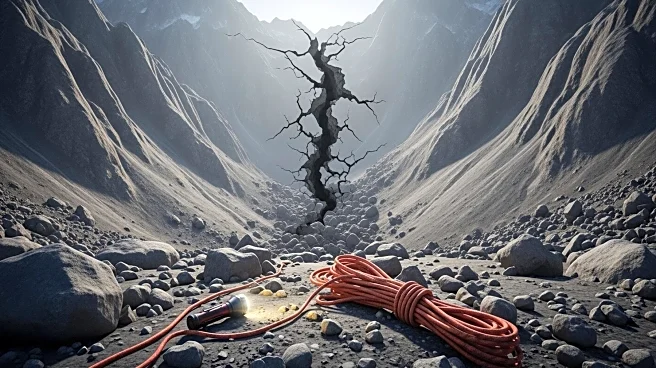What is the story about?
What's Happening?
The Taliban's enforcement of cultural norms has significantly affected rescue operations following a devastating earthquake in Afghanistan. In the village of Andarluckak, Kunar Province, male rescuers prioritized men and children, leaving women and adolescent girls without immediate aid. The cultural restrictions forbid physical contact between men and women who are not family members, leading to women being sidelined during rescue efforts. This has resulted in women waiting for care while men and children receive immediate attention. The situation highlights the challenges faced by aid workers in adhering to cultural norms while trying to provide effective assistance.
Why It's Important?
The impact of cultural norms on rescue operations in Afghanistan underscores the broader challenges of delivering humanitarian aid in regions governed by strict societal rules. The sidelining of women in emergency situations can exacerbate gender inequalities and hinder effective disaster response. This situation may lead to increased scrutiny and pressure on the Taliban to adapt their policies to ensure equitable aid distribution. The international community, including humanitarian organizations, may need to navigate these cultural barriers to provide necessary support, potentially influencing future aid strategies in similar contexts.
What's Next?
The ongoing rescue efforts in Afghanistan may prompt discussions among international aid organizations and the Taliban regarding the integration of women in emergency response teams. There could be calls for policy changes to ensure that cultural norms do not impede life-saving operations. Additionally, the Taliban may face pressure to address gender disparities in their governance, potentially leading to negotiations with global entities focused on human rights and gender equality.
Beyond the Headlines
The situation in Afghanistan highlights the ethical dilemma faced by aid workers in balancing cultural respect with effective humanitarian response. The sidelining of women in rescue operations may lead to long-term shifts in how international organizations approach aid delivery in culturally sensitive regions. This could trigger broader discussions on the role of cultural norms in humanitarian efforts and the need for culturally adaptive strategies.

















